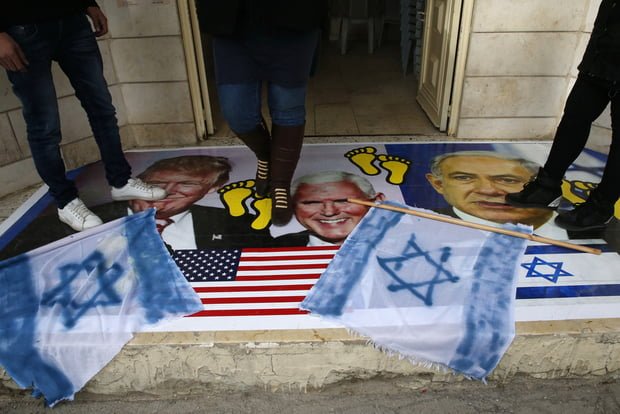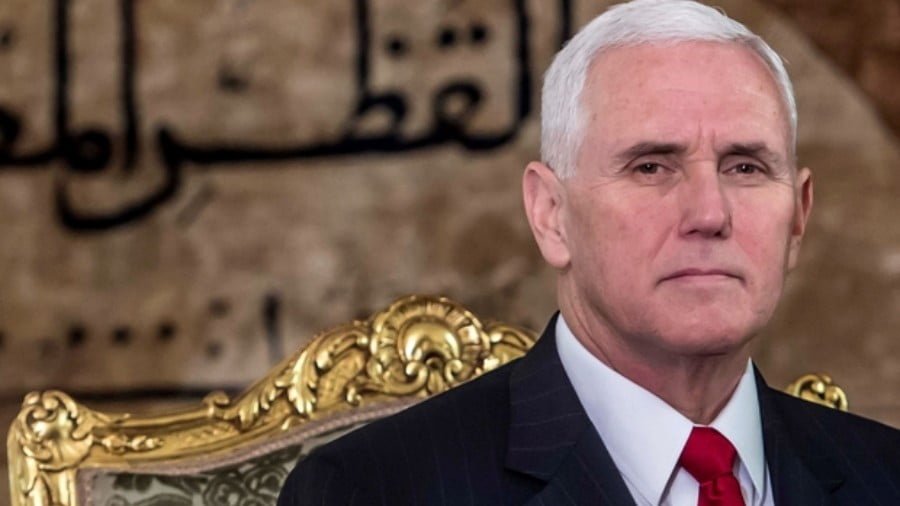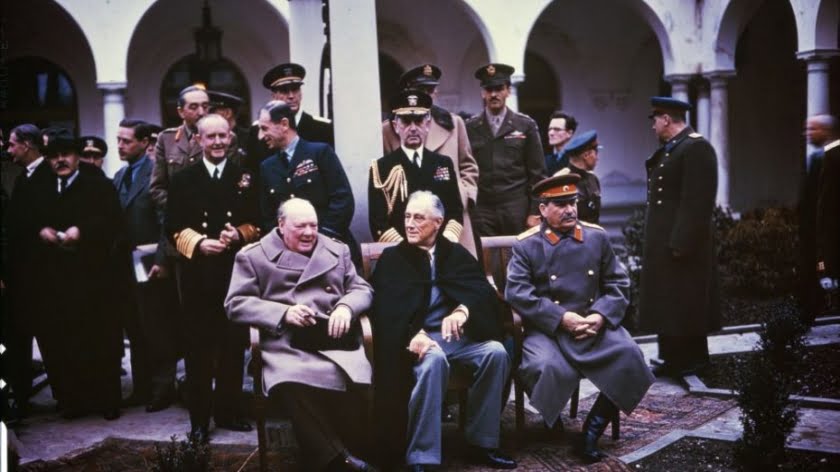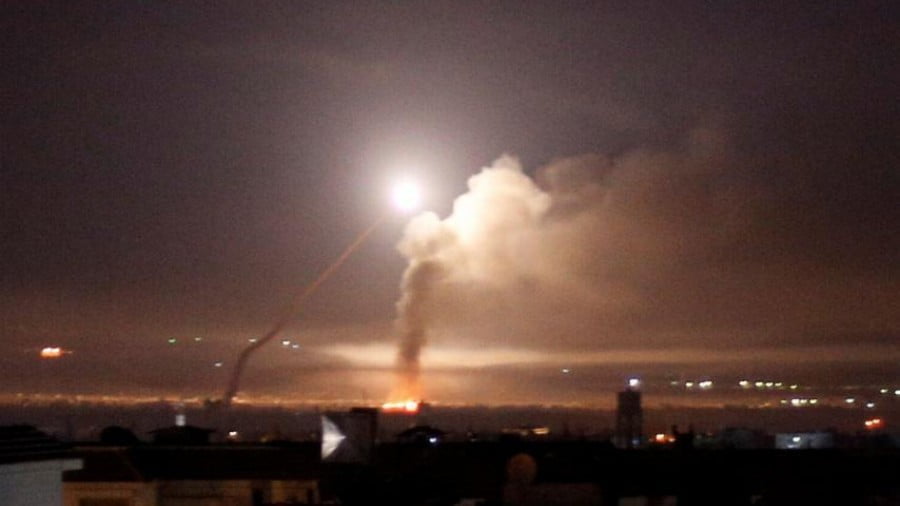Mike Pence’s Middle East Tour: Speaking to Israel’s Hard Right Only
US Vice President Mike Pence will soon complete his four-day trip to the Middle East after visiting Egypt, Jordan and Israel. Pence, a devout evangelical Christian, was refused a meeting with Palestinian Authority President Mahmoud Abbas and a visit to Jesus’ birthplace in Bethlehem.
After US President Donald Trump recognised Jerusalem as the capital of Israel last month, Palestinians responded with protests and angry denunciations. Fourteen protesters have been killed by Israeli security forces.
Punishing Palestinians
Last week, Abbas delivered an incendiary speech in which he derided Trump’s “deal of the century” as the “slap of the century”. To add insult to injury, White House officials on Friday said that an interim US embassy in Jerusalem could open as early as next year. It was clearly intended to provoke and punish Palestinians for their snub.
Earlier, in a move that seemed especially heartless, Trump withheld a $65m payment to UNWRA, which offers vital humanitarian aid to Palestinian refugees.
Pence’s trip had originally been scheduled for last month, just after the Trump declaration. Apparently, no one in the White House thought to consider the impact that this major policy shift would have in the region.
Netanyahu views Israel’s future as lying with Christian evangelicals and the Orthodox, whose fundamentalist world view accords with the Israeli far-right
The trip was hastily cancelled after the widespread protests began in Palestine and other countries in the region.
Politics surrounding the Israeli-Arab conflict often seem like a mysterious version of Japanese Kabuki, in which the players wear masks concealing their real emotions, yet communicate them through coded hand gestures.
For example, during Pence’s visit with Abdel Fattah al-Sisi, the Egyptian strongman purportedly lectured Pence on the folly of the Trump announcement. Yet the New York Times revealed last week that an Egyptian intelligence operative serving as a media minder directed several major TV newscasters to speak favourably on-air of the Trump policy shift.
In other words, Arab states under the financial patronage of Saudi Arabia have tacitly endorsed the US shift towards Israel, while publicly maintaining a more traditional stance supporting the Palestinians.
Hollow statements
When Pence met with Jordan’s King Abdullah, he told the monarch that the US would only push for a two-state solution if both parties agreed to it. Since almost no one in a position of Israeli leadership supports a two-state solution, it appears a dead letter.
Abdullah responded with the almost vacuous remark that the Americans seek to “rebuild trust and confidence”. Is this the most vigorous defence the Jordanian king and custodian of the Muslim holy places could offer on behalf of his Palestinian brothers and sisters?

It leaves the Palestinians in the strange position of receiving hollow statements of solidarity from their former patrons, while confronting a future in which Israel, the US and their Arabs abandon them to their fate.
News reports from Ramallah noted that Abbas was told by the Saudis that he must accept a new Trump peace deal that would replace Jerusalem as the Palestinian capital with the village of Abu Dis. He was also reportedly informed that Israel would annex 10 percent of the West Bank, including most of the major settlement blocs.
Even the Bill Clinton peace offer to Yasser Arafat in the late 1990s, which he rejected, offered the Israelis only about four to six percent of the West Bank.
Budding alliance
The new proposal calls for Palestine to be “demilitarised” and for Israeli forces to continue to monitor the strategic region of the Jordan Valley. Instead of the “ultimate deal”, the Palestinians appear to have been offered little more than dust.
The White House released a statement denying the Palestinian claims, saying the peace agreement was “unfinished” and the final draft would be beneficial to both parties. Palestinians rightfully suspect that this White House does not have their best interests at heart.
Pence, naturally, was received rapturously in Israel. He addressed the Knesset on Monday and told the Israelis words they hadn’t heard from a senior US official in decades. “Jerusalem is Israel’s capital – and, as such, President Trump has directed the State Department to immediately begin preparations to move the United States Embassy from Tel Aviv to Jerusalem,” Pence said during an address to the Israeli parliament on Monday.
Netanyahu recently told political supporters that he foresaw a major decline in support for Israel among non-Orthodox American Jews, who he views as too liberal and too Democratic. Eventually, he suggested that the non-Orthodox community would disappear due to assimilation.
This is news to many of us American Jews who have prided ourselves on our commitment to our traditions for well over a century. Instead, Netanyahu views Israel’s future as lying with Christian evangelicals and the Orthodox, whose fundamentalist worldview accords with the Israeli far-right.
That’s why Pence’s address to the Knesset is especially important for Netanyahu to cement this budding alliance.
The Israeli far-right, which increasingly dominates political discourse, has begun to boldly demand that Israel annex all settlements in the West Bank. Though the US position would not satisfy these demands, it does set up the prospect of Israeli nationalists “settling” for annexing only a portion of what they call Judea and Samaria, making it appear they were compromising on their maximalist demands.
Annexation and apartheid
Only one segment of Israeli society was less than content with the Pence performance: Israeli Palestinians. The Joint List, the third-largest party in the Knesset, announced it would boycott Pence’s address.
Gilad Erdan, an ambitious politician and potential future Likud prime minister, whose portfolio now includes fighting BDS worldwide, denounced the Israeli Palestinian party leader, Ayman Oudeh. Erdan complained that Palestinians “deserve better leadership”. It’s highly questionable whether any Israeli Palestinian agreed with him. But increasingly, Israel is a country at war with itself.
Politics are highly sectarian, with Jewish politicians pandering to their constituency with racist taunts against their Palestinian counterparts.
All this raises the question: what will happen if the Trump plan fails, as seems assured? That’s where the far-right annexation demand comes into play. The Likud central committee has, in fact, voted in favour of annexing all Israeli settlements in the West Bank.
Though no one has specified what would happen to the 2.5 million Palestinians living there, it seems clear that they would not be offered full citizenship. That means that Israel would become a truly apartheid state with a Jewish majority (slightly more than six million) and a large Palestinian minority (around four million, excluding Gaza).
The world refused to permit South Africa to maintain an apartheid state in which four million whites dominated 17 million blacks. Eventually this led to the end of South Africa’s racist regime. Will they stand by as Israel plots something quite similar?
Photo: US Vice President Mike Pence meets with Egyptian President Abdel Fattah al-Sisi (unseen) at the Presidential Palace in the capital Cairo on January 20, 2018 (AFP)
By Richard Silverstein
Source: Middle East Eye







